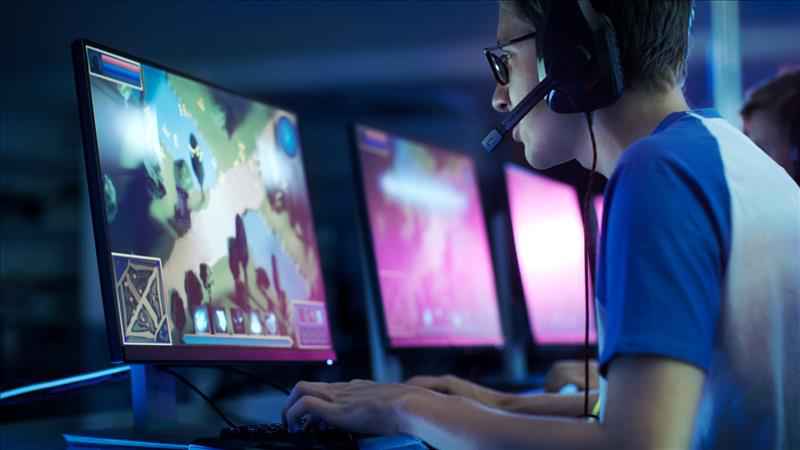
(MENAFN- Asia Times) Even as serious questions are being asked about whether the Tokyo Olympics will be held as scheduled, eSports is revolutionizing 21st-century recreation and the sports world – where sport is played, who plays, and who watches. ESports has increased the reach and participation of sports, and created new business models and an alternative reality powered by digital technology.
The above paragraph summarizes my reply when I am asked to describe the astronomical growth of this segment of the animation, visual effects, gaming and comics (AVGC) entertainment industry.
The global eSports market is valued at more than US$1.08 billion. India, with an estimated 17 million players, is part of the exponential growth of eSports. , the online hub of Star TV, features eSports among its live coverage.
India also has nearly one-third of the world's Internet-connected population. With increasing Internet connectivity, 4G affordability, and the imminent advent of 5G (fifth-generation telecom technology), the future of eSports in India looks strong, and it will be powered by mobile devices.
The eSports Express has left the station, and a national policy is needed to ensure a safe journey. We need enabling policies and measures to make this new world of sport more inclusive. This is the newest dimension of sports in the digital world bringing joy to players, business to service providers and tax revenues to the state.
India's central and state governments are starting to notice eSports. In February, the minister of state for sports, Kiren Rijiju, in Parliament highlighted the popularity of eSports in the country. But he also pointed out the non-existence of a recognized federation. To be legitimized as a sport in India, a game needs to be part of a federation recognized by the Indian Olympic Association. I am sure this will happen soon.
ESports games will feature as medal events in the 2022 Asian Games. Discussions have also started about inclusion in the Olympics.
International Olympic Committee president Thomas Bach has said that as part of the Olympic Agenda 2020+5, the IOC will partner five international sports federations and game publishers to produce the Olympic Virtual Series (OVS), the first-ever Olympic-licensed event for physical and non-physical virtual sports.
The inaugural OVS is being planned as a lead-up to the Tokyo Olympics. The OVS will have five different eSports, the digital versions of five traditional sports – baseball, cycling, motorsport, rowing, and sailing.
ESports is opening doors for Indian athletes to make a mark globally. One of them, Tirth Mehta, won a bronze medal in the eSports card game Hearthstone at the 2018 Asian Games, where eSports was a demo event. To harness this potential, an immediate need is the central and state governments passing a progressive eSports policy.
To draft a national eSports policy, we can learn from the experience of drafting India's first AVGC policy for the southern state of Karnataka in 2012 and another version in 2017. Foremost is making clear a distinction between different gaming genres in the eSports category and separation from formats associated with gambling.
The ability to differentiate eSports, fantasy sports, and skill-based card and board games in which money is an integral part (also called ''real money games'') will be an important aspect of such a national eSports policy. This will help to avoid confusion with gambling.
The stakes and potential are big. Related digital technologies have tremendous applications in areas beyond eSports. Such evolving technologies benefit education, research and development in industries such as automotive, aerospace, health care and more.
Digital sport is a massive new phenomenon of this millennium, which is a digital age. The significance is greater with new acceptance that digital versions of all recognized traditional sports shall be deemed eSports. This paves the way for archery, atya patya (a traditional Indian tag game), cricket, carrom, chess, mallakhamb, pool, and shooting among other global and regional sports to be classified as such.
A digital version of age-old traditional indigenous sports like kabaddi or kho kho is as much an eSports candidate as the two hugely popular global titles of digital soccer, Pro Evolution Soccer and FIFA. Digital FIFA is also a big favorite among many leading Indian cricket players including Virat Kohli and Rohit Sharma.
The national eSports policy must also include various aspects such as the format of play. This is the same as in the real world that distinguishes between amateurs and professionals, of casual play with friends and national players in the international competitions and multibillion-dollar leagues.
The multiple issues in formulating a comprehensive national eSports policy must include the perils of athlete mismanagement and unfair contracts, lack of recognition and inclusivity, and the possibility of certain platforms of games not allowing for fair play.
As a first step, stakeholders are organizing comprehensive discussions for a widely inclusive definition of eSports. This includes recognizing Indian-origin games, to allow maximum Indian participation as players and spectators. We aim to have Indian-made game titles featuring in Asian Games and other international tournaments.
Enabling policies and resources are needed to manage and develop this medium. Stopping how such games are played online because of limited understanding is like stopping a wristwatch to save time. The industry needs to maintain a positive focus, and ensure accurate information and understanding are widely shared so that no one loses out.
The Covid-19 pandemic has seen major growth of eSports and related digital activities. We need to prepare for a post-pandemic policy phase that will help position India as one of the world's top eSports countries.